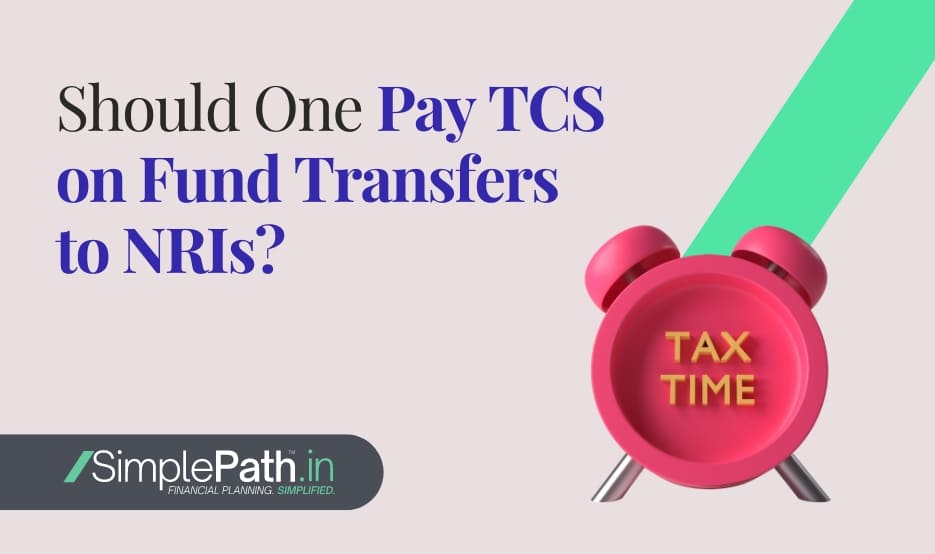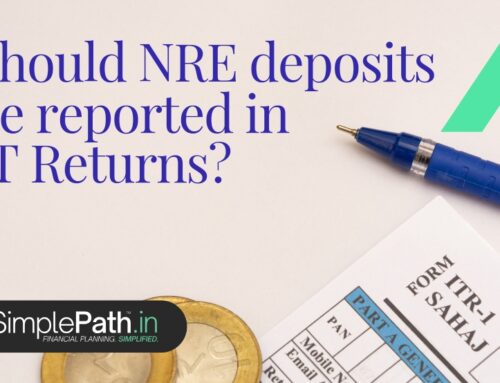In light of the recent changes to the tax laws governing the repatriation of funds from India, this article aims to clear the concerns of non-resident Indians (NRIs) and their families/relatives/friends regarding whether or not they are required to pay a 20% TCS on fund transfers to NRIs.
Despite popular assumption,
TCS is not the final tax that a person must pay.
A brief overview of NRIs
The Foreign Exchange Management Act (FEMA) regulations define NRIs as anyone living outside of India, including Overseas Citizens.
Only Non-Resident Ordinary (NRO), Non-Resident External (NRE), and Foreign Currency Non-Residential (FCNR) bank accounts are acceptable to NRIs. Keeping regular resident savings bank accounts or deposits is illegal.
The provision of TCS (Tax Collected at Source) on fund transfers is the main source of uncertainty. Three requirements are outlined in Section 206c(1g) of the Income Tax Act regarding the applicability of TCS upon repatriation:
- The individual needs to be a resident.
- The person buys foreign exchange from a bank that is an Authorized Dealer (AD).
- Using the Liberalized Remittance Scheme, the resident individual returns the foreign cash they have purchased to a person or nation outside of India (LRS).
TCS / Tax Collected at Source: Not a Final Tax, But a Preventive Tool
Despite popular assumption, TCS is not the final tax that a person must pay. By collecting tax upfront for certain transactions, TCS on fund transfers serves as a deterrent to tax evasion. When a person sends money abroad, the AD Bank (Authorized Dealer) receives a portion of the payment as TCS and deposits it into the government’s account on the person’s behalf.
When the person files their tax returns, they will be eligible to claim the pre-collected tax back. Essentially, the person is eligible for a refund for the full amount of TCS paid if their income is below the taxable level. The total amount of taxes owed by an individual is determined by taking into account their income slab rate, with TCS serving as an advance tax payment system.
Understanding the TCS on Fund Transfers
Let’s examine the exceptions and the finer points of the revisions to the Income Tax Act, concerning TCS on fund transfers, in more detail. These changes have gone into effect since July 1st, 2023. Let us divide this into four main categories to improve the coherence of our thinking.
Category 1: Education Loans
According to the Income Tax Amendment on July 1st, 2023, there would be a 0.5% Tax Collected at Source (TCS) if a resident transfers funds overseas for education, either for themselves or their dependents, using a financial institution’s education loan. This is only the case, though, if remittances amount to more than INR 7 lakhs during a given fiscal year.
Category 2: Self-funded Education and Medical Treatment
Next, there may be situations in which a person transfers money from their resources to another country to pay for medical care or schooling. A TCS of 5% is in effect if the total amount transferred in a fiscal year is above INR 7 lakhs.
Category 3: Overseas Tour Packages
A TCS of 5% is applied without a threshold when a person pays for an international tour package; this means that it is applied to every rupee that is paid for the package. On July 1, 2023, this rate, however, increased to 20%.
Category 4: All Other Remittances
If a resident individual’s total remittances surpass INR 7 lakhs in a fiscal year, a TCS of 5% is applied to all other remittances. This regulation is in force through June 30, 2023. The TCS rate will increase to 20% on July 1, 2023, and there won’t be a threshold restriction.
Essentially, the changes impact two distinct groups:
- those taking vacations overseas and
- people transferring money in different ways under the Liberalized Remittance Scheme (LRS)
Regardless of the amount, the TCS for these two categories will increase to 20%.
However, the previous regulations will still be in effect for transfers linked to medical treatment and education, regardless of whether they are made using personal cash or an education loan.
How this affects the NRI Community
The NRI community need not be alarmed by the modifications to TCS on fund transfers. Transfers from Non-Resident Ordinary (NRO), Non-Resident External (NRE), or Foreign Currency Non-Resident (FCNR) accounts are not affected by the TCS adjustments. As a result, NRIs are not required to pay taxes. For them, everything is still as they were before.
How this affects the families/relatives/friends of an NRI
Family members of the NRI such as parents. grandparents, siblings, etc. or relatives or their friends will get affected by TCS on fund transfers
- if they make a wire transfer of any amount to the NRI
- or make a deposit of any amount to the NRE account of the NRI
But in the event the person deposits an amount to the NRO account of the NRI, the person will not be/should not be affected by TCS. This is because the funds in the NRO account are non-repatriable and if the account holder wishes to transfer any amount from the NRO account, the account holder will have to pay the required tax.
Final Thoughts -
The Income Tax Act has undergone substantial revisions that could affect specific groups of people, especially those who travel abroad for vacation or remit money through the Liberalized Remittance Scheme (LRS). But within the Non-Resident Indian (NRI) community, there’s no reason to panic. Transfers from Non-Resident Ordinary (NRO), Non-Resident External (NRE), or Foreign Currency Non-Resident (FCNR) accounts are not subject to the modifications in Tax Collected at Source (TCS). Stated differently, these categories continue to be subject to the current regulations.
The purpose of this article is to dispel any possible confusion regarding the TCS on fund transfers to NRIs. We urge you to share this article and raise awareness if you find this information useful. Making wise financial decisions can be made easier with an understanding of these finer points. In the future, we hope to keep giving you the most recent information on subjects like these. Until then, keep yourself safe, knowledgeable, and confident as you travel through your financial life.
To make your investments in India, get in touch with us.





